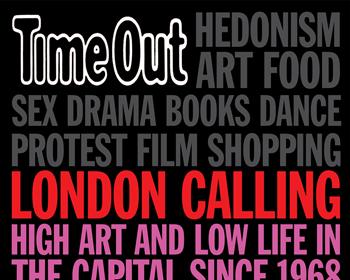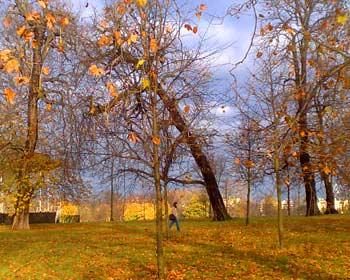This summer something very curious happened: thousands of vitamins and
supplements were nearly banned in the UK – and the strangest thing is
that hardly anyone seemed to notice.
An EU directive was proposed for 1st August 2005 with the intention of
implementing the widespread prohibition of 5000 vitamins and natural
supplements. The premise behind the directive was a sound one,
with the intention of regulating the strengths of vitamins and
supplements sold throughout Europe by producing a ‘positive list’ which
would contain only those that had undergone rigorous testing to prove
that they were safe for public consumption. Sounds reasonable
enough but it would have meant that the companies who produce them
would have had to spend up to £250 000 on testing their
supplements. Unfortunately, this would not be financially viable
for many manufacturers meaning that thousands of safe supplements, many
of which are found naturally in food sources and have been part of the
human diet for centuries, would have disappeared.
Thankfully, due to a lengthy campaign and legal appeal by the Alliance
of Natural Health and Nutri-Link Ltd, the directive has affected ‘only’
hundreds of supplements rather than thousands and the onus of testing
has changed: supplements now have to be proved to be unsafe rather than
the manufactures having to prove their safety in order to get onto the
positive list. Although this is good news, the potential threat
to our natural health industry and our freedom of choice remains with
plans to extend similar restrictive laws to America and Canada.
But why should you care? Unless you’re a fan of alternative
health treatments – and let’s face it, that’s only hippie-hemp-wearing
types isn’t it? – this is something that will just pass you by and
leave more space on the shelves for crisps and chocolate.
Well, I’m a fully-committed meat-eating, synthetic fibre-wearing
Londoner and I care passionately about this issue. And so should
you.
I’ve never had much time for alternative treatments, regarding them as
the domain of tree-hugging, macrobiotic types. Fine if it floats your
boat, I thought as I happily swigged penicillin, but it’s probably just
a great big con. Then, earlier this year, something happened
which changed my outlook forever and I discovered just how effective
supplements can be.
Five years ago, I began to experience debilitating stomach cramps and
my stomach would swell up by two inches immediately after food and then
spend the rest of the day inflating and deflating like a pair of
bellows.
It began to have a big impact on my life: I was constantly exhausted,
my previously clear skin was terrible and I put on 2 stone even though
I was eating healthily and exercising and had previously been a
renowned skinny minnie. Worryingly, my face began to bloat
every day as well, making my eyes puffy and giving me a faux double
chin. Attractive.
I saw my GP who told me that it appeared to be a chronic condition that
I would have to learn to live with. So I got on with my life and
tried not to mind that I had to give up wearing jeans because of the
pain. Then, late last year, it became unbearable. I began
to feel nauseous on an alarmingly regular basis and it got to the point
where the cramps were so bad that some days I would choose not to eat
rather than put myself through that (and I’m a girl who loves her food
and firmly believes in square meals).
I found a homeopath with an excellent reputation and followed his
dietary suggestions and took the supplements he recommended for me to
fix my broken digestive system. Within a week the bloating and
cramps had stopped and I haven’t looked back since.
The difference it has made to my life is nothing short of
extraordinary. My skin has cleared, I’ve lost the weight, my face
is the right shape and, most importantly, I can eat without
experiencing deeply painful cramps and bloating. It’s only now that I’m
better that I realise how bad it had become and that I had been feeling
ill every single day for years.
There is no doubt in my previously sceptical mind that the change is
all down to homeopathy. Some people say doubtfully, “Well, if you
think it makes you feel better…” as though it were unquestionably a
placebo. For me, there is no other explanation for five years
worth of physical symptoms disappearing almost overnight. The
placebo effect is an argument commonly employed by alternative health
cynics: interesting then that many vets now use homeopathic remedies
and supplements to treat animals – when was the last time you heard
Rover extolling the psychological benefits of pill-popping?!
The most worrying thing about the threat to the natural health
industry, however, is its potential erosion of our freedoms. Even if
you believe alternative treatments are a load of old hooey, surely it
is only right that people have the choice to use them if they wish?
Many people like me whose doctors have been unable to cure their
conditions are turning to alternative treatments, a great deal of
which, like homeopathy, rely on supplements. Additionally, due to
concern over the lack of vitamin content in our highly processed modern
diets, 32 million people in the UK now use some form of dietary
supplement. Dr Robert Verkerk, Director of the Alliance for
Natural Health (ANH), explains that ‘With rapidly declining vitamins
and mineral content in fruit, vegetables and other foods, and
continuing increases in degenerative diseases such as heart disease and
cancer in the West, this [saving safe vitamins and supplements from
prohibition] has always been an issue worth fighting for.’
It’s interesting that this threat to natural health is sweeping the UK
at the same time as a surge of interest in organic produce and
healthy-eating harridan Dr Gillian McKeith striding around our screens
extolling the importance of what we put into our bodies.
Incredible too that the government was open to the prohibition of
thousands of vitamins and natural supplements even as it has been
working towards the decriminalisation of cannabis (recently linked in
scientific studies to psychosis) and 24 hour drinking licences in the
face of widespread opposition.
So although the directive is less harsh than originally feared, it
still demonstrates a worrying threat to our natural health
industry. The fight is not yet over and the ANH continues to
monitor the situation closely. To keep abreast of these
developing issues log onto its website which is displayed at the bottom of this article. There may be trouble ahead…


